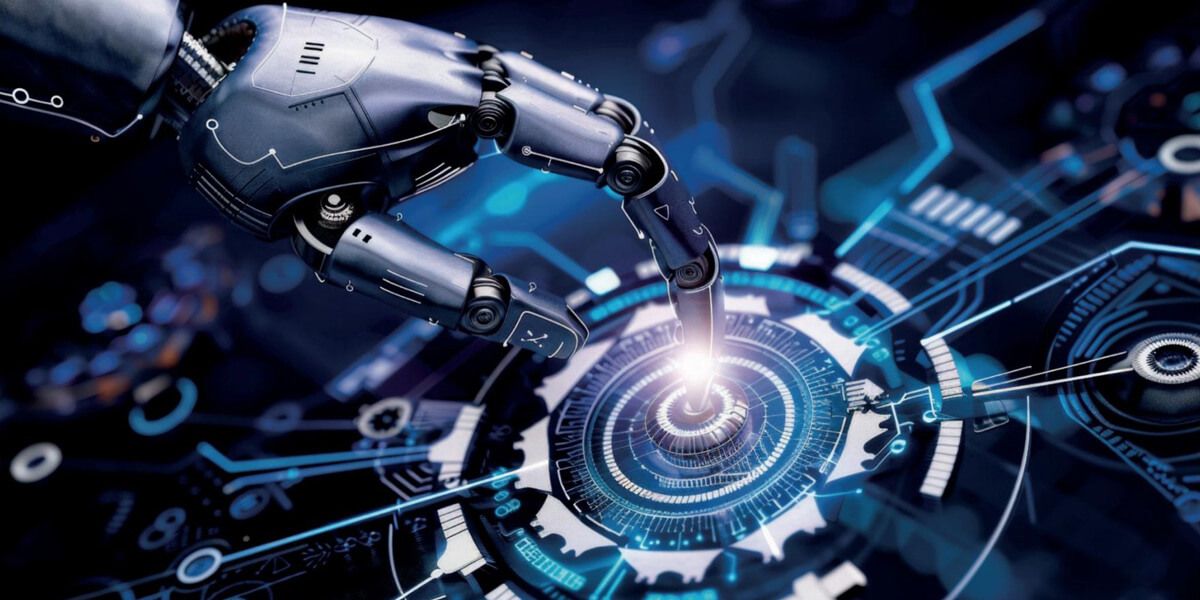
Dr. Evangelos Theodorou
Theodorou Group Chairman & CEO
The Present of Robotics
Robots have found numerous applications in industrial production for decades, such as in automatic palletizing, automatic packaging, pick & place systems, etc. It is estimated that over 500,000 robots are installed worldwide every year. There are several reasons for the widespread adoption of robots in industry, such as:
- The reduction in the cost of building each robot
- The availability of standardized robotic modules for specific applications at reduced cost
- Industry 4.0 technologies, such as IIoT, smart cameras, 5G, etc., which allow easier integration of robots into the production process while meeting safety requirements
- The emergence of specialized types of robots (e.g., cobots, AGVs, etc.) that expand robotic applications in industrial settings
- The broadening of the term "robot" to include systems (with or without movement) that automatically perform tasks in the factory. This new perspective essentially extends robotics into automation areas where computers and digital technologies play an increasingly significant role.
The result is that robots are finding applications in smaller industries, something that seemed unthinkable just a few years ago. But what does the future hold for robotics?
The Future of Robotics
Robots are expected to play an increasingly larger role in factories of the future. The main factors are:
1. The Workforce
Robots are currently used to handle tasks that humans either do not want to do or cannot perform with the required accuracy, reliability, and safety. In recent years, the industry has faced growing difficulties in finding human labor and is expected to increasingly turn to robotics to help resolve this issue. It is a fact that where robots have been implemented, there have been measurable benefits for both businesses and workers.
2. Systems Integration
A robot can easily be described as "the system of systems" that optimally connects hardware with software. Industrial systems integrators will be called upon to integrate robots into the new digital factory. This practically means that robots will not operate alone but will need to be part of a unified production system, ensuring that every part of the factory or production line is interconnected with the others. This means that we can now talk about synchronized factories that will inevitably be more productive, reliable, and safe.
At the same time, the factory will need to synchronize with the supply chains it serves. This involves connecting the synchronized production system with the company's other information systems, meaning robots will need to communicate with the ERP system and beyond.
The new era of industrial systems integration requires a range of engineers for its implementation, such as electrical, mechanical, automation, programming, and electronics engineers. Since it is practically impossible to have such specialized technical knowledge within the factory, industries will need to rely on experienced industrial systems integrators for the new applications of robotics.
3. Supply Chain
The need for efficiency and transparency in the supply chain will inevitably lead to the use of robots for both warehouse automation and new intralogistics applications. Mobile robots (AGVs), cobots, and traditional stationary robots will play a key role here.
4. The “As A Service” Model”
The "As A Service" model for robotic systems is expected to play an increasingly important role in industry in the coming years. According to this model, factories acquire the necessary equipment without any initial investment and either pay a rental fee or a fixed fee per produced item. The "As A Service" model can include repair/maintenance services, spare parts, consumables, etc., while the factory can request a change or upgrade to the system if its needs grow or diversify.
The "As A Service" model is expected to become the primary method for acquiring industrial equipment in the coming years.
5. Artificial Intelligence
Artificial intelligence is expected to play a significant role in the application of robotics in industry. New adaptive digital platforms will be required both for the robots themselves and for their integration into the production system. It is certain that with artificial intelligence, robots will become smarter, have better vision with specialized cameras, and cover more applications than we know today.
 Dr. Evangelos Theodorou is the President & CEO of Theodorou Group. He holds a degree in Electrical and Mechanical Engineering – NTUA (National Technical University of Athens) and holds a Ph.D. in Electronic Systems from the University of Cambridge, England. He has been a lecturer at the Department of Electrical and Mechanical Engineers of the NTUA.
Dr. Evangelos Theodorou is the President & CEO of Theodorou Group. He holds a degree in Electrical and Mechanical Engineering – NTUA (National Technical University of Athens) and holds a Ph.D. in Electronic Systems from the University of Cambridge, England. He has been a lecturer at the Department of Electrical and Mechanical Engineers of the NTUA.


